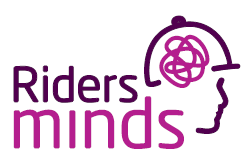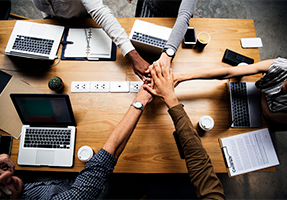
We are all around, even if you don’t notice that we are
Each year on March 31, the world observes Transgender Day of Visibility (TDOV) to raise awareness about transgender people.
Today, we are delighted to be able to share Mars’s* story and continue to break down barriers, encourage others, and showcase that equestrian sport IS open to all.
We are all human beings, and our gender does not determine our passion for our horses.
My background:
I am twenty-seven years old and an equestrian of twenty-one years. I identify as a trans man (female to male or FtM). I came out as transgender at 18 after exploring a non binary identity for a few years and deciding that that particular term didn’t fit my experience as well.
What are the biggest challenges you have faced and what have you done to help overcome these?
Possibly the most universal challenge for transgender people in the UK is the wait times for NHS treatment, and the hoops you have to jump through to get it.
Many people in the UK have waited upwards of six years for their very first NHS gender clinic appointment. After that they may have faced barriers such as long wait times between appointments (upwards of a year sometimes), GPs refusing to prescribe recommended drugs to trans patients, surgery teams just disappearing and being denied care due to mental health struggles.
Naturally, facing incomprehensible waits for care isn’t great for your mental health. So the waits become longer and the cycle continues.

What do we do about this? Survive, one day at a time. We make support groups where we share advice and try to comfort people who are earlier on in their journey.
Mostly you have to find the determination within yourself to do the waiting.
The other huge challenge for me was the way my relationships with my family and friends changed, and by how surprised I was by so many people.
I had a few friends who directly shared their transphobic opinions to me, and at that point I knew it was time to say goodbye to those people because they could no longer be a friend to me.
I felt relatively safe coming out to my family, who had always been supportive of the LGBTQ+ community. It definitely caught me off guard when members of my family turned out to be completely devastated once they realised I was serious about transitioning.
I received a lot of comments so deeply hurtful that I don’t really feel that I can repeat them. Eventually it became clear to me that I would have to leave my family home.

On the other hand, there were some relatives whom I avoided coming out to, because they were of an older generation that I believed would never understand me. Every single one of them has really pleasantly surprised me! They have accepted and respected me, even if they don’t understand, and I’m much closer with some of them now than I ever thought I could be.
The final big challenge for me is seeing people debate your existence everywhere; particularly online. People are very quick to form and share their opinions wherever they can, even if they’re actually very harmful to a group of generally vulnerable human beings. It’s pretty exhausting trying to avoid the constant barrage of debate around whether you should be allowed to live as your true self, take care of your bathroom needs, or be trusted around women and children. It takes a lot of courage to go and live your life as normal when you’re regularly accused of being something sinister just because of who you are. The best thing I did for myself was to learn how to stop persuading people to accept me and to just move on with things.
In general, has the equestrian community been understanding, or have you experienced negativity? If the latter, what’s that been like for you?
I am lucky enough to have never faced any explicit transphobia within the equestrian community, at least not that I know about. I do feel grateful to the people I have known through the years, particularly back when being trans was a totally new idea to most people.
What I have felt though, is a sense of invisibility. Often, people assume that because I am in the presence of horses, that I am a woman. In group riding lessons or the livery yard group chat, often we are all greeted with “Ladies!” In my younger days this would have been really painful for me to hear, now it just leaves me in the awkward position of assuming whether I’m being included or not.
A text reading “Hey, does anyone fancy a hack today?” is a much more inviting prospect than “Hey [word which excludes only you], does anyone fancy a hack today?”. A simple change in our language is an easy way to be an ally, and just make sure that you’re including everyone in a group.
In contrast, I started riding lessons at a new riding school last year and my new teacher came and asked me what my pronouns were during my first lesson! I felt immediately safe and at ease with this person and I’m sure that being a rider who feels respected and visible has impacted my own self carriage and made me a more positive guide for the horse I’m working with.
Eventually, the riding teacher disclosed to me that they are also transgender, which goes to show that we are all around, even if you don’t notice that we are!
Why is communicating your story so important to help others? And what can people do to help if they find themselves in a position where someone they know is transitioning or transgender?
I’m glad to be in a position to share my story because of the chance that it might give someone else hope. I remember feeling totally stuck, isolated, like I were in some kind of life limbo and now I sit here- still on the journey, but much further down the road. I believe in the resilience and patience of every trans person who feels that way now. One day at a time, things do progress.
If you know someone who is transgender or transitioning, then showing that you’re trying goes a long way! Everyone makes mistakes with new terminology, names and pronouns but what really counts is that you want to do it right. If you get it wrong, try to remember to correct yourself straight away every time (even if the person you’re referring to isn’t around) and you’ll get the hang of it much quicker.
I’d recommend asking the trans person you know what you can do to help them feel comfortable, we all have slightly different needs and preferences and asking us directly will mean a lot.
Also, don’t forget to help yourself if you need it. It can be a shock and you might feel out of your depth, that doesn’t make you a bad person.
If you’re able to address any difficult feelings you have with a therapist then that is great, but otherwise there is a growing number of online support groups for relatives and partners of trans people. Just please check that it’s a trans positive space before you involve yourself too much. A good ally will be able to manage their feelings and communicate in a healthy way, so everyone wins when you help yourself.
Thank you Mars* for sharing your story with us.
All of the Riders Minds services are free, 100% confidential and accessible 24 hours a day. If you would like to talk to one of our trained team please call the helpline on 0800 088 2073, or text 07480 488 103, or access the web chat through the website.
Useful Links:
- Mermaids – Supporting trans, non-binary and gender-questioning children and young people and the important people in their lives
- Trans Unite – Find a Transgender Support Group Near You
- TransActual – A national, trans led and run organisation focussed specifically on working for trans adults in the UK
*We have changed Mars’s name to respect the privacy of family members.
A Gender Dictionary
- Transgender man- Someone who identifies as male presently but may not have been assigned a male sex at birth.
- Transgender woman- Someone who identifies as female presently but may not have been assigned a female sex at birth.
- HRT- Hormone replacement therapy.
- FtM- Female to male
- MtF- Male to female
- AFAB- Assigned female at birth
- AMAB- Assigned male at birth
- Non- binary (NB, enby)- Someone whose identity falls outside of traditional “male” or “female” roles. This might be in the form of a mixed identity or a “fluid” (changing) identity.
- Agender- Someone who doesn’t identify with any particular gender. May consider themselves non-binary.
- Intersex- An umbrella term for individuals born with sex traits (chromosomes, genitals or hormones) that don’t fit typical male or female definitions.
- Cisgender- A person who identifies with their sex at birth. Comes from the Latin “cis” meaning “this side of”.
- Gender presentation- The way you express your gender, this might be through hairstyles, clothing or even body language.




